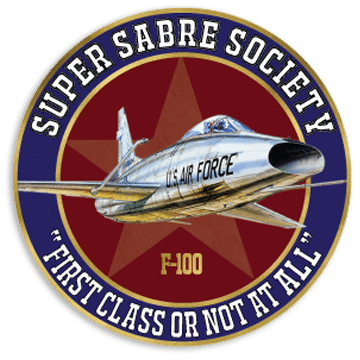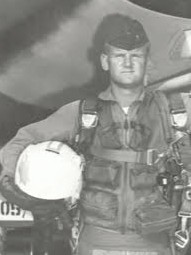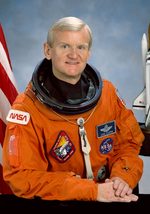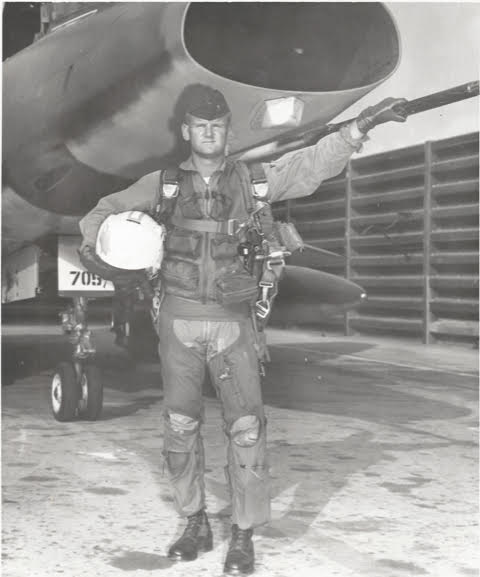“Col. Casper earned his pilot wings at Reese Air Force Base, Texas. After F-100 training at Luke Air Force Base in Arizona, he flew 229 combat missions with the 35th Tactical Fighter Wing at Phan Rang Air Base, Vietnam. Following his tour in Vietnam, Col. Casper flew F-100 and F-4 aircraft, while assigned to the 48th Tactical Fighter Wing, Royal Air Force Lakenheath, United Kingdom. Casper graduated from the USAF Test Pilot School at Edwards Air Force Base, California, and became Chief of the F-4 Test Team. He flew initial performance and weapons separation tests for the F-4G Wild Weasel aircraft and avionics tests for F-4E and A-7 aircraft. Col. Casper then became Operations Officer and, later, commander of the 6513th Test Squadron, where he conducted flight test programs to evaluate and develop tactical aircraft weapons systems. He was then assigned to USAF Headquarters at the Pentagon and was Deputy Chief of the Special Projects Office, where he developed USAF positions on requirements, operational concepts, policy and force structure for tactical and strategic programs. Col. Casper has logged more than 10,000 flying hours in 52 different aircraft.
NASA EXPERIENCE: Selected by NASA in May 1984, Col. Casper became an astronaut in June 1985. A veteran of four spaceflights, he has logged over 825 hours in space. He was the pilot on STS-36 (1990) and spacecraft commander on missions STS-54 (1993), STS-62 (1994) and STS-77 (1996). His technical assignments while at the Astronaut Office included: Chief of the Operations Development branch; lead for improvements to the nosewheel steering, brakes, tires and development of a landing drag chute; astronaut team leader for the Shuttle Avionics Integration Laboratory (SAIL) and ascent/entry Capsule Communicator (CAPCOM) in the Mission Control Center.
Following his last shuttle mission, Col. Casper has served in positions of increasing responsibility at NASA. Casper was Director of Safety, Reliability, and Quality Assurance at the Johnson Space Center (JSC), where he was responsible for all safety, reliability and quality activities for JSC’s human spaceflight programs, including the International Space Station, the Space Shuttle, Space Launch Initiative and Crew Return Vehicles. He also was responsible for planning, directing and implementing an effective institutional safety program to prevent injuries, loss of life or loss of capital assets.
After the Columbia accident in February 2003, Col. Casper became the NASA Mishap Investigation Team’s Deputy for the Columbia debris recovery operation, which involved directing the efforts of more than 6,000 ground, air and water search personnel as well as protection and impoundment of debris. He was Co-Chair of the Return-To-Flight Planning Team, a NASA Headquarters chartered independent team charged with addressing all actions necessary to comply with the Columbia Accident Investigation Board recommendations. He then joined the Space Shuttle Program and became Manager of the Management Integration and Planning Office and, later, Associate Manager of the Space Shuttle Program. He is currently with the Orion Program as Special Assistant for Program Integration.
John is a member of the Society of Experimental Test Pilots, the Association of Space Explorers, the American Institute of Aeronautics and Astronautics, the Aircraft Owners and Pilots Association and the United States Air Force (USAF) Academy Association of Graduates.”(1)
(1) Source: https://www.nasa.gov/offices/nesc/academy/John_Casper_Bio.html















